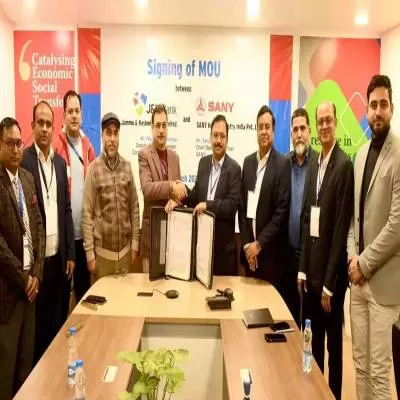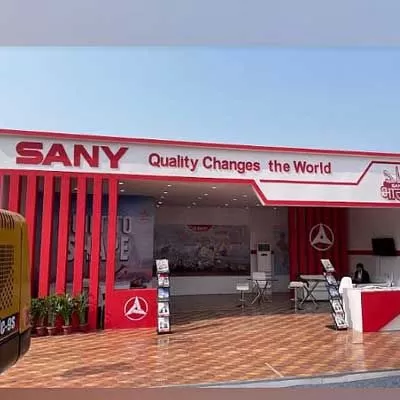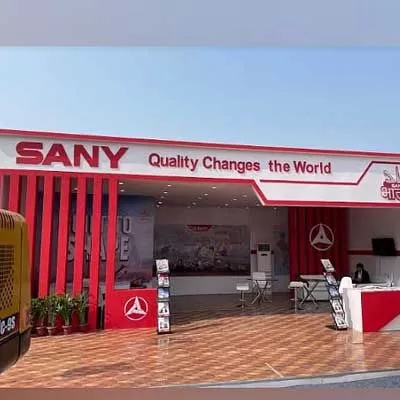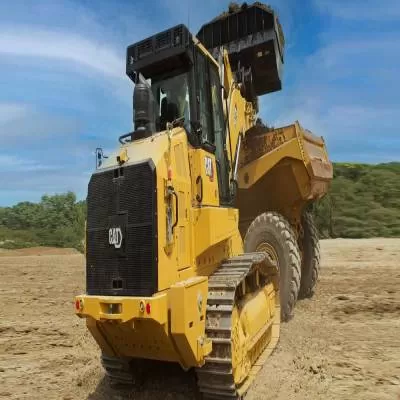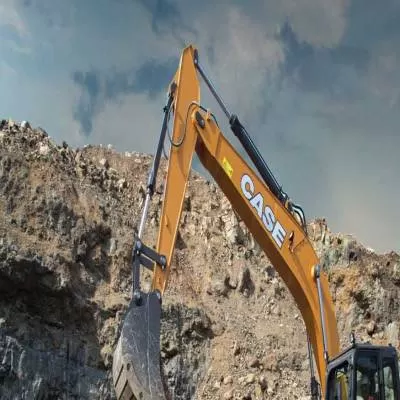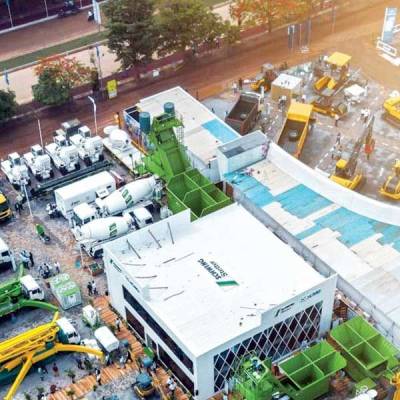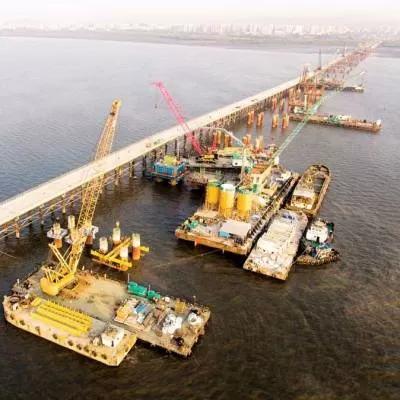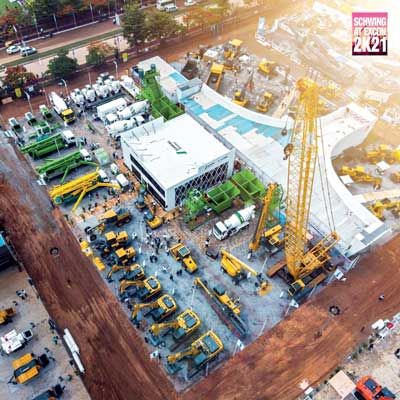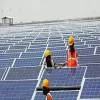MAKING INDIA
The results of the recent Global Innovation Index highlights that India has risen to 66th position this year from 81 in 2015. With growth in mind, the government has started its movements in setting up a panel on innovation, which would act as a key catalyst in improving the country´s growth.
The export performance of a country is the key to measuring its economic health. Export performance depends on a series of factors like the size of the economy, its stage of development, the nature of domestic as well as foreign investments and technological capabilities. The degree of trade and financial liberalisation, which molds policy decisions, also influences the export performance.
Our Prime Minister, Narendra Modi, in his maiden speech highlighted his focus on ´Make in India´. This focus on Make in India aims to attract investments from countries outside India into industrial corridors for manufacturing projects. The government has introduced policies to improve ease of business, develop infrastructure and also increased the permissible limits for FDI. The Prime Minister aims to not only reduce our dependency on imports but also increase our exports to become a manufacturing hub globally. India´s exports declined 17.6 per cent and imports also reduced by 15.5 per cent during April 2015 to January 2016, resulting in a reduced trade deficit of $106.85 billion.
The factors that will assist in making ´Make in India´ a reality are: 1.Clear industrial policies: To become a manufacturing hub, there should be a clear manufacturing strategy, which would require industrial policies to be in place. Countries like China, Korea, Germany and other successful nations have all had industrial policies which were implemented diligently. Our industrial policies should define the priority sectors and highlight how we will gain a competitive edge over other manufacturing hubs in the world.
2.Building on skilled labour: India has an advantage of skilled labour capable of manufacturing sophisticated machines. Large multinational companies have made India their export hub due to this. India should leverage this as a competitive advantage and innovate technology that other countries have not yet done.
3.Creating Industrial zones: For India to become a manufacturing hub, special manufacturing zones need to be created. These zones should be hubs for innovation, specialised skills and supply chains. Global manufacturing companies should be incentivised to set up innovation centres and manufacturing facilities in these zones. The existing industrial zones like Pune, Delhi and Bengaluru should be able to scale up to compete with the global manufacturing hubs.
4.Competitive pricing and concessions: GST (Goods and Services Tax) is the new game-changer in the industry. There will be a lot of positive impact on the construction industry with the introduction of GST. With taxes been reduced at each stage - from procurement of raw material to the selling of end product - the cost to consumers will reduce. This is a great boost to the industry, as now India can offer end products to other countries at competitive prices. Additionally, GST is expected to reduce the cost of logistics by 20-30 per cent, which is a great boon to the entire manufacturing industry.
According to a report by Indian Brand Equity Foundation (IBEF), the Indian construction equipment market is poised to grow to $ 22.7 billion by 2020 as compared to $ 6.5 billion in 2014. This directly translates and exhibits the kind of role the Indian construction equipment industry is playing in driving the growth of the economy.
India has a geographical advantage, and being strategically located, it has immense potential in meeting export demands from Asia, the Middle East and Africa. The cost of transportation from India to these countries is comparatively less. India being a peninsula, and sea transportation being cheaper, facilitates exports to countries like Sri Lanka, African countries and the Middle East. India also has a pool of quality workforce and the cost of manpower is relatively low, which results in reduced cost of the end product.
According to Energy Statistics 2015, industrial sector used 52.72 per cent of the total final energy consumption. With the government´s increased focus on manufacturing, along with the booming infrastructure in India, demand for energy is bound to increase. Construction equipment players are exploring technologies that will help them deliver more with less energy consumption.
India is expected to become one of the world´s top three growth economies and among the top three manufacturing destinations by 2020. The government is working towards increasing exports by providing incentives such as duty drawback and duty remission schemes under the foreign trade policy. Additionally, all developing countries are in a path of infrastructure growth and urbanisation that will drive the demand in the construction equipment industry.
Construction equipment giants are ramping up their manufacturing capability and looking at increased revenues that can be generated from exports.
India has an opportunity to become an important export market due to the advantages like geographical proximity, competitive cost, advanced technology and the government´s support to ease policy for exporting machines. Construction equipment companies are earning almost 20 per cent of their revenues from export. The aim is to increase the revenue as well as the percentage of revenue earned from export.
However, the recent report from The World Bank Group -2016 indicates no rank change for India in ¨Trading across borders´, compared to last year. This fact underlines the kind of changes needed to boost the export climate in India. Given the potential India holds to become an export hub of construction equipment for the world, the question remains:
Is India poised to be the export hub for the construction equipment industry?
(Communication by the management of the company)
Is India poised to be the export hub for the construction equipment industry? questions DHEERAJ PANDA, BU Head and Vice President-Excavator, SANY India. The results of the recent Global Innovation Index highlights that India has risen to 66th position this year from 81 in 2015. With growth in mind, the government has started its movements in setting up a panel on innovation, which would act as a key catalyst in improving the country´s growth. The export performance of a country is the key to measuring its economic health. Export performance depends on a series of factors like the size of the economy, its stage of development, the nature of domestic as well as foreign investments and technological capabilities. The degree of trade and financial liberalisation, which molds policy decisions, also influences the export performance. Our Prime Minister, Narendra Modi, in his maiden speech highlighted his focus on ´Make in India´. This focus on Make in India aims to attract investments from countries outside India into industrial corridors for manufacturing projects. The government has introduced policies to improve ease of business, develop infrastructure and also increased the permissible limits for FDI. The Prime Minister aims to not only reduce our dependency on imports but also increase our exports to become a manufacturing hub globally. India´s exports declined 17.6 per cent and imports also reduced by 15.5 per cent during April 2015 to January 2016, resulting in a reduced trade deficit of $106.85 billion. The factors that will assist in making ´Make in India´ a reality are: 1.Clear industrial policies: To become a manufacturing hub, there should be a clear manufacturing strategy, which would require industrial policies to be in place. Countries like China, Korea, Germany and other successful nations have all had industrial policies which were implemented diligently. Our industrial policies should define the priority sectors and highlight how we will gain a competitive edge over other manufacturing hubs in the world. 2.Building on skilled labour: India has an advantage of skilled labour capable of manufacturing sophisticated machines. Large multinational companies have made India their export hub due to this. India should leverage this as a competitive advantage and innovate technology that other countries have not yet done. 3.Creating Industrial zones: For India to become a manufacturing hub, special manufacturing zones need to be created. These zones should be hubs for innovation, specialised skills and supply chains. Global manufacturing companies should be incentivised to set up innovation centres and manufacturing facilities in these zones. The existing industrial zones like Pune, Delhi and Bengaluru should be able to scale up to compete with the global manufacturing hubs. 4.Competitive pricing and concessions: GST (Goods and Services Tax) is the new game-changer in the industry. There will be a lot of positive impact on the construction industry with the introduction of GST. With taxes been reduced at each stage - from procurement of raw material to the selling of end product - the cost to consumers will reduce. This is a great boost to the industry, as now India can offer end products to other countries at competitive prices. Additionally, GST is expected to reduce the cost of logistics by 20-30 per cent, which is a great boon to the entire manufacturing industry. According to a report by Indian Brand Equity Foundation (IBEF), the Indian construction equipment market is poised to grow to $ 22.7 billion by 2020 as compared to $ 6.5 billion in 2014. This directly translates and exhibits the kind of role the Indian construction equipment industry is playing in driving the growth of the economy. India has a geographical advantage, and being strategically located, it has immense potential in meeting export demands from Asia, the Middle East and Africa. The cost of transportation from India to these countries is comparatively less. India being a peninsula, and sea transportation being cheaper, facilitates exports to countries like Sri Lanka, African countries and the Middle East. India also has a pool of quality workforce and the cost of manpower is relatively low, which results in reduced cost of the end product. According to Energy Statistics 2015, industrial sector used 52.72 per cent of the total final energy consumption. With the government´s increased focus on manufacturing, along with the booming infrastructure in India, demand for energy is bound to increase. Construction equipment players are exploring technologies that will help them deliver more with less energy consumption. India is expected to become one of the world´s top three growth economies and among the top three manufacturing destinations by 2020. The government is working towards increasing exports by providing incentives such as duty drawback and duty remission schemes under the foreign trade policy. Additionally, all developing countries are in a path of infrastructure growth and urbanisation that will drive the demand in the construction equipment industry. Construction equipment giants are ramping up their manufacturing capability and looking at increased revenues that can be generated from exports. India has an opportunity to become an important export market due to the advantages like geographical proximity, competitive cost, advanced technology and the government´s support to ease policy for exporting machines. Construction equipment companies are earning almost 20 per cent of their revenues from export. The aim is to increase the revenue as well as the percentage of revenue earned from export. However, the recent report from The World Bank Group -2016 indicates no rank change for India in ¨Trading across borders´, compared to last year. This fact underlines the kind of changes needed to boost the export climate in India. Given the potential India holds to become an export hub of construction equipment for the world, the question remains: Is India poised to be the export hub for the construction equipment industry? (Communication by the management of the company)


